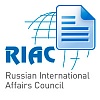This digest encompasses various topics: from a collection of maps which show how the situation changed in Ukraine, the implications of the Ukrainian crisis on Turkey and the Middle East, moving on to governing uranium in the UK, assessing economic competitiveness of Azerbaijan and giving a statistical retrospective and fluctuations of gender equality and ageing population in Europe.

For those who like
visual representation, here is an
exemplary collection of maps with the development of the Ukrainian crisis over these few months gathered up by
the NY Times. Here you can find how the region has changed and make predictions what else might be on the way.
Ukraine in maps is very helpful in terms of visualizing the fluctuations and radical changes.
 In this piece featured by Research Institute for European and American studies you will find a geo-political approach towards the situation around Turkey in the region, what possible influence the Ukrainian crisis could have on Turkey. Despite all the turbulences in Syria, Iran and now Crimea PM’s Erdogan position looks more of less secure in the future elections. The author describes relations between the EU and Turkey in various international situations alongside with the unresolved Kurdish problem.
In this piece featured by Research Institute for European and American studies you will find a geo-political approach towards the situation around Turkey in the region, what possible influence the Ukrainian crisis could have on Turkey. Despite all the turbulences in Syria, Iran and now Crimea PM’s Erdogan position looks more of less secure in the future elections. The author describes relations between the EU and Turkey in various international situations alongside with the unresolved Kurdish problem.

Once again the hot topic of recent months –
Ukraine. After everyone seemed to be on a brink of an ugly quarrel between the US, Russia and the EU, now Russia and co have cooled down and are ready to
start comprehensive and grown-up talks. Strategy, politics and economy – author gives a classic tool kit in this article
Russia’s take on Ukraine tensions.
 Barcelona is also following news on Ukraine. Barcelona Centre for International affairs CIDOB has featured an international note on what impact Ukraine crisis had on the Middle East. Not hard to guess the most unnerving preoccupation of the region is the likely changes in the energy sector. Economic threats and opportunities are the most interesting parts of this note.
Barcelona is also following news on Ukraine. Barcelona Centre for International affairs CIDOB has featured an international note on what impact Ukraine crisis had on the Middle East. Not hard to guess the most unnerving preoccupation of the region is the likely changes in the energy sector. Economic threats and opportunities are the most interesting parts of this note.

Yet another post-Soviet country, but a much more stable and prosperous –
Azerbaijan.
Centre for Economic and Social development in Baku has issued a national
competitiveness report with a detailed and meticulous contents. Analyzing every sector of the economy, this report provides a
perspective of how Azerbaijan can
become a very first sustainable economy in the region.

This is quite a
well-built report presented by
Danish Institute for International studies dwelling upon the issue of
governing uranium in the UK. This could be interesting for those who dig into the problem of Iranian nuclear program, to make comparisons and parallels. Outlining methodology and then going to a thorough analysis of the domestic nuclear legislation and logistics the author presents a well-managed
retrospective of this story line.

To make a tranquil close up to this digest here is a
working paper on
gender equality and care choices in the light of population ageing issued by
Centre for Policy studies in Budapest. A special focus on
care and family policies shaping women’s potential labor market participation in ageing European societies is the central piece of this paper. Centre for Policy Studies concentrates on the major tendencies in the Central and Eastern Europe.
Digest Editor: Maria Gurova.
 In this piece featured by Research Institute for European and American studies you will find a geo-political approach towards the situation around Turkey in the region, what possible influence the Ukrainian crisis could have on Turkey. Despite all the turbulences in Syria, Iran and now Crimea PM’s Erdogan position looks more of less secure in the future elections. The author describes relations between the EU and Turkey in various international situations alongside with the unresolved Kurdish problem.
In this piece featured by Research Institute for European and American studies you will find a geo-political approach towards the situation around Turkey in the region, what possible influence the Ukrainian crisis could have on Turkey. Despite all the turbulences in Syria, Iran and now Crimea PM’s Erdogan position looks more of less secure in the future elections. The author describes relations between the EU and Turkey in various international situations alongside with the unresolved Kurdish problem. Barcelona is also following news on Ukraine. Barcelona Centre for International affairs CIDOB has featured an international note on what impact Ukraine crisis had on the Middle East. Not hard to guess the most unnerving preoccupation of the region is the likely changes in the energy sector. Economic threats and opportunities are the most interesting parts of this note.
Barcelona is also following news on Ukraine. Barcelona Centre for International affairs CIDOB has featured an international note on what impact Ukraine crisis had on the Middle East. Not hard to guess the most unnerving preoccupation of the region is the likely changes in the energy sector. Economic threats and opportunities are the most interesting parts of this note.








